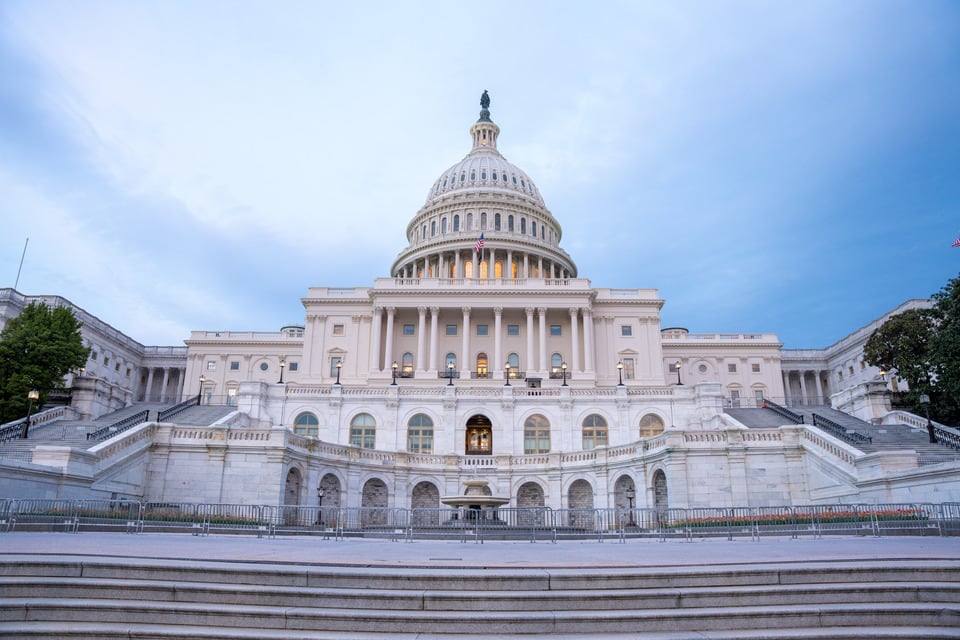News | Administration
House committee chairs pen letters to Columbia, Barnard requesting information about preparations for further protests
The chairs sent identical letters to eight other institutions.

By Gabriella Gregor Splaver / Columbia Daily SpectatorThe letters reference congressional testimony of students that exposed “horrific first-hand experiences of Jewish students.”By Rebecca Massel • August 30, 2024 at 3:41 PM
By Rebecca Massel • August 30, 2024 at 3:41 PM
The chairs of two House committees sent letters on Aug. 22 to Columbia and Barnard leadership requesting information on policies developed “to prepare for unauthorized encampments.”
Rep. Jason Smith (R-Mo.), chairman of the House Committee on Ways and Means, and Rep. Virginia Foxx (R-N.C.), chairwoman of the House Committee on Education and the Workforce, issued identical letters to leaders of 10 institutions requesting information on their preparations for the coming year and disciplinary proceedings for violations of campus rules.
The named universities—which include Harvard University, the University of Pennsylvania, Massachusetts Institute of Technology, and the University of California, Los Angeles—are required to submit responses by Sept. 5. This marks the first public communication that the congressional committees have had with Armstrong since her appointment as interim University president on Aug. 14.
“[C]olleges and universities are now acutely aware of the consequences across their campuses that stem from insufficient leadership,” the representatives wrote. “Refusals to impose basic discipline, hold bad actors accountable, and restore order on campus in the face of disruptions, violence, and hate will make life worse for all students, including Jewish students.”
The letters ask university leaders questions regarding any new or updated policies they have implemented for the fall semester to prepare for encampments and protests. It also requests information regarding disciplinary processes if students break campus policies or laws. Smith and Foxx emphasized that the universities’ disciplinary bodies must be willing to enforce policies and encourage local prosecutors to pursue charges against students arrested for protesting.
“Colleges and universities receive extraordinary benefits through the tax code and through many forms of federal funding. The American people expect basic accountability in return,” the representatives wrote.
A Columbia spokesperson wrote that the University is working to “review and enhance” its policies before the fall semester.
“Columbia is committed to combating antisemitism and all forms of discrimination and taking sustained, concrete action toward a campus where everyone in our community can thrive,” the spokesperson wrote.
A Barnard spokesperson echoed a similar sentiment.
“Barnard College is committed to protecting the free and respectful exchange of ideas and the safety of our community. We take allegations of antisemitism seriously and unequivocally condemn any expression of hatred on our campus. We will continue cooperating fully with the requests from Congress,” the spokesperson wrote.
Smith and Foxx drew a connection between student movements and the protests in Washington, D.C., against Israeli Prime Minister Benjamin Netanyahu’s visit to Congress in July. The committee chairs wrote that there is “documented evidence” that students from universities under congressional investigation were present at protests on July 24 and cited White House National Security Communications Adviser John Kirby, who said after the protest in D.C. that Iran “has been funding and encouraging” some protest activity.
The letters also reference “shocking” congressional testimony since Oct. 7, 2023, that revealed “horrific first-hand experiences of Jewish students.”
Several Columbia students and faculty have spoken before Congress about antisemitism on campus. Eden Yadegar, GS/JTS ’25, spoke in February at a Committee on Education and the Workforce roundtable about her experience facing antisemitism at Columbia. Business School assistant professor Shai Davidai testified on June 13 before the Committee on Ways and Means about antisemitism and federal funding. Noa Fay, BC ’24, SIPA ’25, spoke at a July 26 roundtable hosted by the Senate Bipartisan Task Force for Combating Antisemitism.
Former University President Minouche Shafik testified before Congress on April 17, during which members of the House Committee on Education and the Workforce grilled her on disciplinary actions taken against campus protesters. Hours before her testimony, protesters established the first “Gaza Solidarity Encampment” on South Lawn. The next day, Shafik authorized the New York Police Department to arrest over 100 protesters. She resigned on Aug. 14 following mounting pressure, including calls from Republican members of Congress for her to step down.
“As the fight against antisemitism continues, we will not rest until American colleges and universities restore a safe learning environment for students,” the letters from Smith and Foxx read. “The American people expect basic accountability.”
Deputy News Editor Rebecca Massel can be contacted at rebecca.massel@columbiaspectator.com. Follow her on X @rebeccamassel.
Want to keep up with breaking news? Subscribe to our email newsletter and like Spectator on Facebook.
More In News
Editor's Picks

